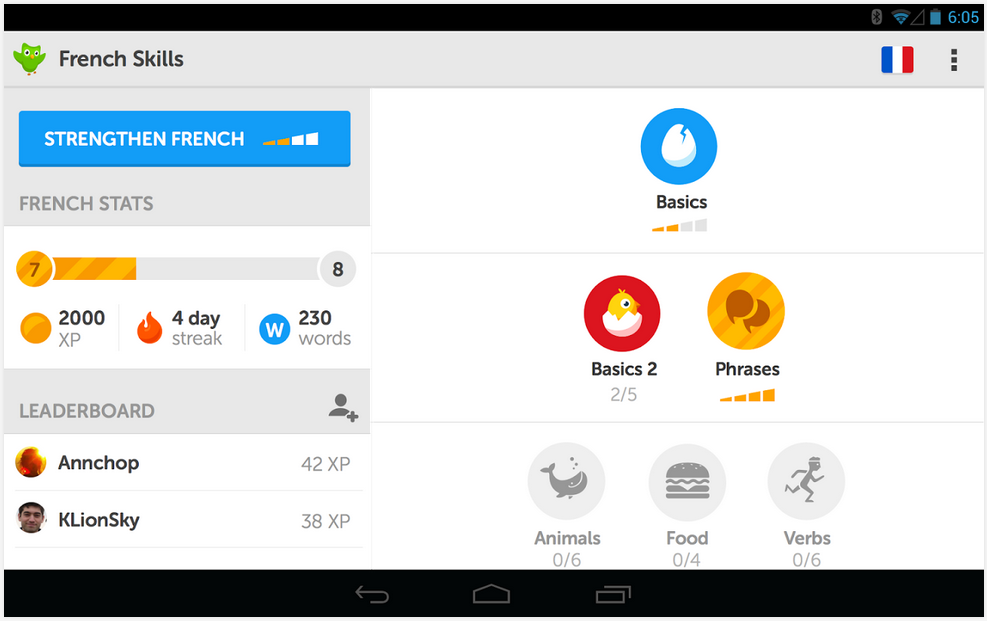The popular language learning platform Duolingo today announced that it has closed a $20 million Series C round led by Kleiner Perkins Caufield & Byers. As Duolingo’s founder Luis von Ahn told me, the company plans to use this new funding to continue on its path to dominate the language-learning market.
Duolingo previously raised a Series A round led by Union Square Ventured in 2011 and a $15 million Series B round led by NEA in 2012. Duolingo also counts Ashton Kutcher and Tim Ferris among its investors. The company’s previous investors also joined in this new round.
Von Ahn told me Duolingo now has about 25 million registered and 12.5 million active users. That’s up from about 10 million the company reported by the end of last year. This means that more people now learn a language with Duolingo than in the U.S. public school system. Von Ahn attributes at least a part of this growth to Apple choosing Duolingo as its iPhone App of the Year, which marked the first time the company choose an education app for this honor.
As for why the company decided to raise a new round, von Ahn told me that he received quite a bit of inbound interest from venture capital firms. While he talked to a few, Kleiner Perkins felt like the ideal partner, not in the least because Duolingo will work with Kleiner partner Bing Gordon who will also join the Duolingo board as an observer.

The company also plans to use the additional funding to ramp up its hiring. Duolingo currently has 34 employees — most of them engineers and designers — but plans to get to 50 in the near future.
Duolingo will soon release a groups feature that will make it easier for teachers to use the service in their classes (and track their students’ progress). Duolingo also expects that large companies, which now often use Rosetta Stone and similar tools to train their workforce, will start using this groups feature.
Von Ahn has a track record of building successful products based on these hybrid approaches that bring together human collaboration and technology. With reCAPTCHA, which he sold to Google, he turned CAPTCHAs into something useful by combining them with OCR technology.
With Duolingo, he is building a language learning and translation tool that is based on these same principles. The service teaches you a language, but at the same time, you are also using some of the practice translations to translate real sentences for paying customers.
Last year, the company partnered with CNN and BuzzFeed, for example, to translate some of those company’s articles into Spanish, Portuguese and French. The company is working on similar deals with other publishers and both CNN and BuzzFeed have renewed their original contracts.
Going forward, this will obviously be a major source of revenue for the company, but von Ahn also expects that Duolingo will open its self-service portal for translations within the next two months.
Duolingo doesn’t have an immediate goal to break even, though. “We have revenue, and that’s good,” von Ahn told me, but his plan for now is to grow the user base Most importantly, though, von Ahn wants to increase Duolingo’s user base (and that, in return, will also strengthen the translation side of the service). “Our main goal going forward is to become the de facto way to learn a language,” he told me.
When the company asked users why they use Duolingo, many said they considered it a game that is both entertaining and useful. This isn’t something Duolingo set out to do, but based on these findings — and with Bing Gordon among its advisers now — the company plans to add more game elements to its service in the future.
One thing von Ahn says he won’t do in the future, though, is pay for advertising. It has never spent a single dollar on ads and doesn’t plan to do so anytime soon.
